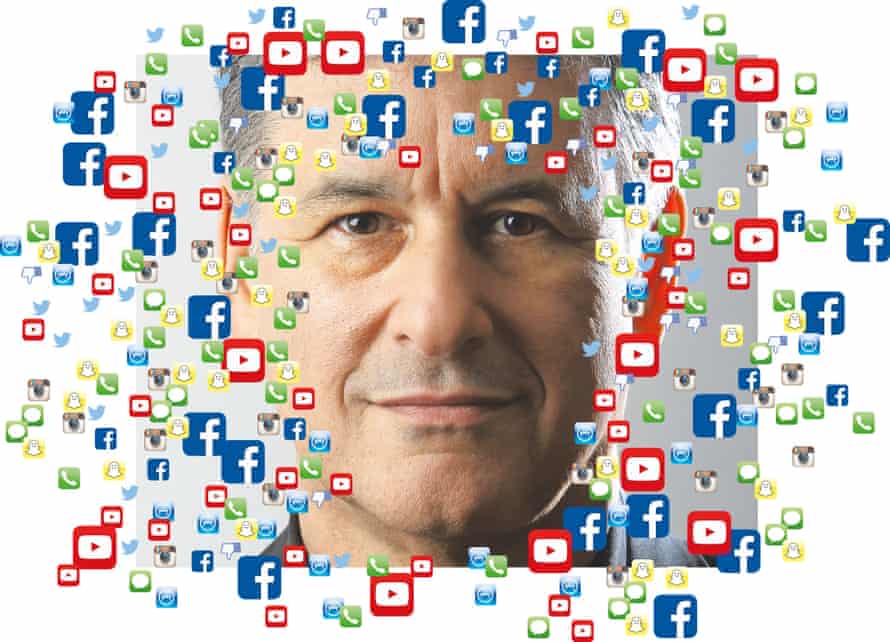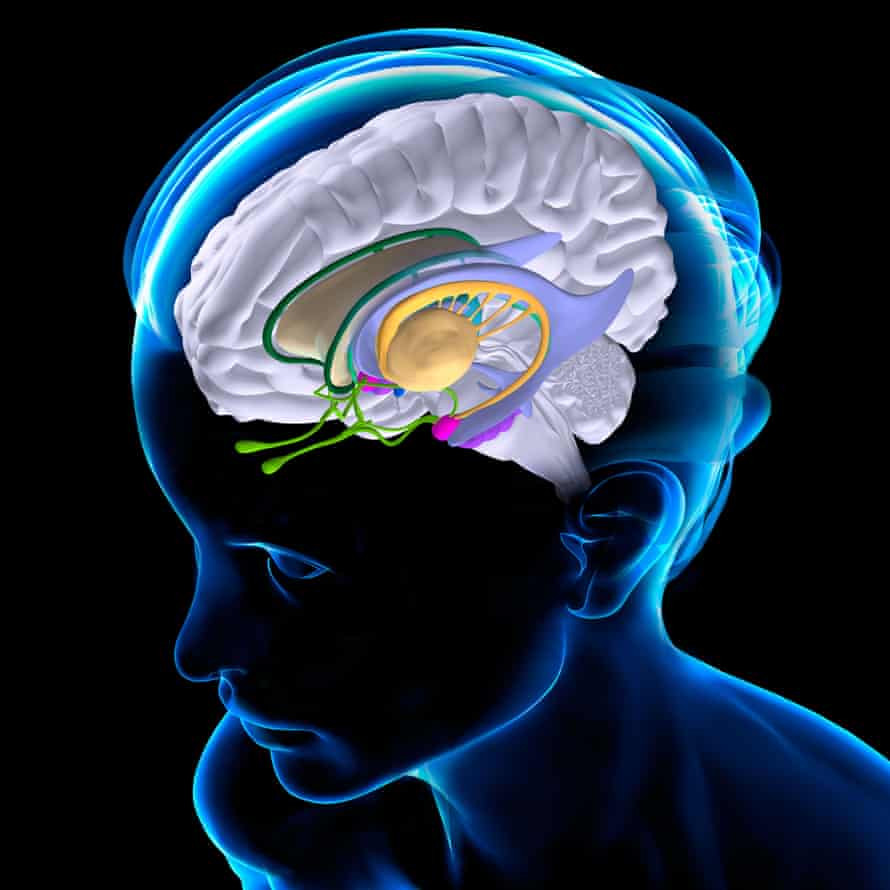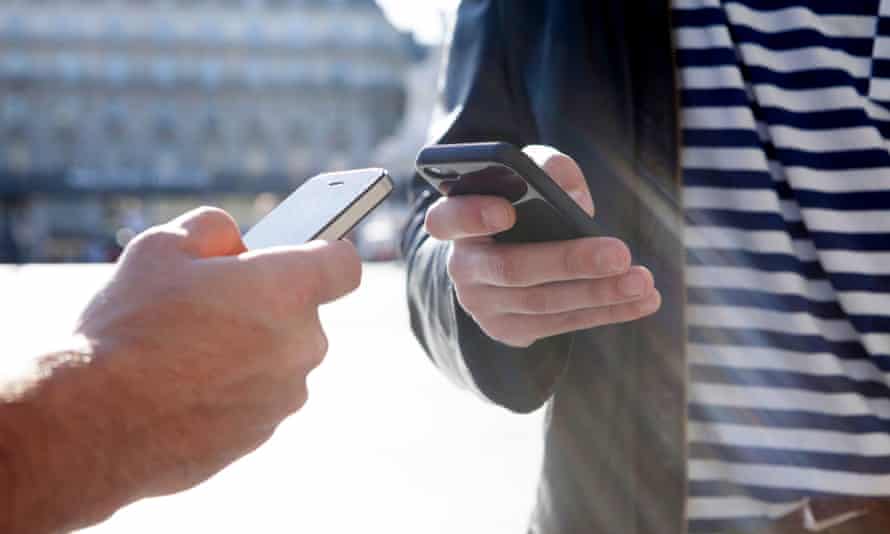how long do opioids stay in your system

Our brains are busier than ever before. We're assaulted with facts, pseudo facts, jibber-jabber, and rumour, all posing as data. Trying to figure out what y'all need to know and what you can ignore is exhausting. At the same time, we are all doing more. 30 years agone, travel agents made our airline and rail reservations, salespeople helped usa notice what nosotros were looking for in shops, and professional typists or secretaries helped busy people with their correspondence. At present we do nearly of those things ourselves. We are doing the jobs of ten different people while nevertheless trying to keep up with our lives, our children and parents, our friends, our careers, our hobbies, and our favourite TV shows.
Our smartphones have become Swiss army pocketknife–like appliances that include a lexicon, calculator, web browser, email, Game Boy, appointment calendar, vocalism recorder, guitar tuner, weather forecaster, GPS, texter, tweeter, Facebook updater, and flashlight. They're more powerful and do more things than the most avant-garde figurer at IBM corporate headquarters 30 years ago. And we use them all the fourth dimension, function of a 21st-century mania for cramming everything nosotros do into every single spare moment of reanimation. Nosotros text while nosotros're walking across the street, grab upwards on electronic mail while standing in a queue – and while having lunch with friends, nosotros surreptitiously check to see what our other friends are doing. At the kitchen counter, cosy and secure in our domicile, we write our shopping lists on smartphones while we are listening to that wonderfully informative podcast on urban beekeeping.
But there's a fly in the ointment. Although we think nosotros're doing several things at once, multitasking, this is a powerful and diabolical illusion. Earl Miller, a neuroscientist at MIT and i of the world experts on divided attention, says that our brains are "not wired to multitask well… When people think they're multitasking, they're actually just switching from one task to another very rapidly. And every time they do, there's a cognitive cost in doing so." And then we're not actually keeping a lot of balls in the air like an good juggler; we're more like a bad amateur plate spinner, frantically switching from one chore to another, ignoring the one that is not right in front of us merely worried it volition come crashing down any minute. Even though nosotros retrieve we're getting a lot done, ironically, multitasking makes us demonstrably less efficient.
Multitasking has been found to increment the production of the stress hormone cortisol as well equally the fight-or-flying hormone adrenaline, which can overstimulate your brain and cause mental fog or scrambled thinking. Multitasking creates a dopamine-addiction feedback loop, effectively rewarding the brain for losing focus and for constantly searching for external stimulation. To make matters worse, the prefrontal cortex has a novelty bias, pregnant that its attending can be easily hijacked by something new – the proverbial shiny objects nosotros utilise to entice infants, puppies, and kittens. The irony hither for those of usa who are trying to focus amid competing activities is clear: the very brain region we need to rely on for staying on task is easily distracted. We answer the telephone, look upward something on the net, check our email, transport an SMS, and each of these things tweaks the novelty- seeking, reward-seeking centres of the encephalon, causing a flare-up of endogenous opioids (no wonder it feels so good!), all to the detriment of our staying on task. Information technology is the ultimate empty-caloried brain candy. Instead of reaping the big rewards that come from sustained, focused effort, we instead reap empty rewards from completing a thousand little sugar-coated tasks.
In the old days, if the phone rang and nosotros were busy, we either didn't answer or we turned the ringer off. When all phones were wired to a wall, at that place was no expectation of being able to reach u.s.a. at all times – one might have gone out for a walk or been between places – and so if someone couldn't reach you lot (or you lot didn't feel like existence reached), it was considered normal. Now more people take mobile phones than accept toilets. This has created an implicit expectation that y'all should exist able to attain someone when it is user-friendly for y'all, regardless of whether it is convenient for them. This expectation is and then ingrained that people in meetings routinely answer their mobile phones to say, "I'chiliad sorry, I can't talk now, I'thou in a meeting." Just a decade or two ago, those same people would have let a landline on their desk go unanswered during a meeting, then different were the expectations for reachability.
Just having the opportunity to multitask is detrimental to cognitive functioning. Glenn Wilson, sometime visiting professor of psychology at Gresham College, London, calls it info-mania. His enquiry establish that being in a situation where you are trying to concentrate on a task, and an email is sitting unread in your inbox, tin can reduce your effective IQ by x points. And although people accredit many benefits to marijuana, including enhanced creativity and reduced pain and stress, it is well documented that its principal ingredient, cannabinol, activates dedicated cannabinol receptors in the encephalon and interferes profoundly with retention and with our power to concentrate on several things at one time. Wilson showed that the cognitive losses from multitasking are even greater than the cognitive losses from pot‑smoking.
Russ Poldrack, a neuroscientist at Stanford, institute that learning information while multitasking causes the new information to become to the wrong part of the encephalon. If students study and sentinel Television receiver at the same time, for example, the data from their schoolwork goes into the striatum, a region specialised for storing new procedures and skills, non facts and ideas. Without the distraction of Television receiver, the information goes into the hippocampus, where it is organised and categorised in a variety of ways, making it easier to retrieve. MIT'due south Earl Miller adds, "People can't do [multitasking] very well, and when they say they can, they're deluding themselves." And information technology turns out the brain is very skillful at this deluding business concern.

Then in that location are the metabolic costs that I wrote about earlier. Asking the brain to shift attention from i activity to another causes the prefrontal cortex and striatum to burn upward oxygenated glucose, the same fuel they need to stay on task. And the kind of rapid, continual shifting we do with multitasking causes the brain to burn through fuel so rapidly that we experience exhausted and disoriented after even a short fourth dimension. Nosotros've literally depleted the nutrients in our brain. This leads to compromises in both cognitive and physical performance. Amidst other things, repeated task switching leads to feet, which raises levels of the stress hormone cortisol in the brain, which in plow can atomic number 82 to aggressive and impulsive behaviour. By contrast, staying on task is controlled by the inductive cingulate and the striatum, and once we appoint the primal executive manner, staying in that state uses less energy than multitasking and actually reduces the brain's demand for glucose.
To make matters worse, lots of multitasking requires decision-making: Practise I reply this text message or ignore it? How do I respond to this? How do I file this e-mail? Practise I continue what I'one thousand working on now or have a intermission? It turns out that controlling is also very hard on your neural resources and that lilliputian decisions appear to take up as much free energy as big ones. One of the first things we lose is impulse control. This rapidly spirals into a depleted state in which, afterward making lots of insignificant decisions, we can finish up making truly bad decisions about something important. Why would anyone want to add together to their daily weight of information processing by trying to multitask?
In discussing information overload with Fortune 500 leaders, acme scientists, writers, students, and small concern owners, email comes up again and again as a problem. Information technology'south not a philosophical objection to email itself, it's the mind-numbing number of emails that come in. When the 10-year-old son of my neuroscience colleague Jeff Mogil (head of the Pain Genetics lab at McGill University) was asked what his male parent does for a living, he responded, "He answers emails." Jeff admitted after some idea that information technology'due south non and so far from the truth. Workers in authorities, the arts, and industry report that the sheer book of electronic mail they receive is overwhelming, taking a huge seize with teeth out of their twenty-four hours. We feel obliged to answer our emails, simply it seems impossible to do so and get anything else washed.
Before email, if you wanted to write to someone, you had to invest some effort in it. You'd sit down down with pen and paper, or at a typewriter, and carefully compose a message. There wasn't anything about the medium that lent itself to dashing off quick notes without giving them much thought, partly considering of the ritual involved, and the time it took to write a note, discover and address an envelope, add postage, and take the alphabetic character to a mailbox. Considering the very human activity of writing a notation or letter to someone took this many steps, and was spread out over time, we didn't go to the trouble unless we had something important to say. Considering of email's immediacy, most of u.s. give little thought to typing up any footling thing that pops in our heads and hitting the send push button. And email doesn't toll anything.
Sure, there's the money you paid for your computer and your net connection, but there is no incremental cost to sending one more than e-mail. Compare this with paper letters. Each 1 incurred the cost of the envelope and the stamp postage stamp, and although this doesn't stand for a lot of money, these were in limited supply – if you ran out of them, you'd have to make a special trip to the stationery store and the post office to buy more, so you didn't utilise them frivolously. The sheer ease of sending emails has led to a change in manners, a trend to be less polite about what we ask of others. Many professionals tell a similar story. One said, "A large proportion of emails I receive are from people I barely know asking me to exercise something for them that is outside what would unremarkably be considered the telescopic of my work or my relationship with them. Email somehow apparently makes information technology OK to ask for things they would never inquire by phone, in person, or in snail post."
There are as well of import differences between snail mail and e-mail on the receiving end. In the quondam days, the simply mail we got came once a day, which effectively created a cordoned-off section of your mean solar day to collect it from the mailbox and sort it. Most chiefly, considering it took a few days to arrive, in that location was no expectation that you would act on information technology immediately. If y'all were engaged in another activeness, you lot'd but let the mail sit in the box exterior or on your desk until you were gear up to bargain with it. Now email arrives continuously, and most emails demand some sort of action: Click on this link to see a video of a babe panda, or reply this query from a co-worker, or make plans for lunch with a friend, or delete this email as spam. All this action gives us a sense that we're getting things done – and in some cases we are. But we are sacrificing efficiency and deep concentration when we interrupt our priority activities with email.
Until recently, each of the many dissimilar modes of communication we used signalled its relevance, importance, and intent. If a loved 1 communicated with you via a poem or a song, even before the message was apparent, y'all had a reason to assume something nigh the nature of the content and its emotional value. If that same loved one communicated instead via a summons, delivered by an officer of the court, you lot would have expected a different bulletin earlier fifty-fifty reading the document. Similarly, telephone calls were typically used to transact different business from that of telegrams or business letters. The medium was a clue to the message. All of that has inverse with email, and this is one of its overlooked disadvantages – considering it is used for everything. In the erstwhile days, you might sort all of your postal mail into ii piles, roughly corresponding to personal letters and bills. If you were a corporate director with a decorated schedule, you might similarly sort your telephone messages for callbacks. Merely emails are used for all of life's messages. Nosotros compulsively check our email in function considering nosotros don't know whether the next message will exist for leisure/entertainment, an overdue bill, a "to do", a query… something you tin can do now, afterward, something life-irresolute, something irrelevant.
This doubt wreaks havoc with our rapid perceptual categorisation system, causes stress, and leads to decision overload. Every email requires a decision! Do I respond to information technology? If so, now or afterwards? How important is it? What will be the social, economic, or job-related consequences if I don't respond, or if I don't reply correct at present?

Now of grade e-mail is approaching obsolescence equally a communicative medium. Nearly people under the age of thirty think of email every bit an outdated mode of communication used only by "old people". In its place they text, and some still post to Facebook. They attach documents, photos, videos, and links to their text messages and Facebook posts the mode people over 30 do with email. Many people under 20 at present see Facebook every bit a medium for the older generation.
For them, texting has become the chief fashion of communication. It offers privacy that you don't get with telephone calls, and immediacy you don't get with e-mail. Crunch hotlines take begun accepting calls from at-hazard youth via texting and it allows them two big advantages: they can deal with more than one person at a time, and they can laissez passer the conversation on to an proficient, if needed, without interrupting the conversation.
But texting suffers from about of the problems of email and then some. Because it is express in characters, information technology discourages thoughtful word or any level of item. And the addictive problems are compounded past texting's hyperimmediacy. Emails take some fourth dimension to piece of work their way through the internet and they require that you lot take the step of explicitly opening them. Text messages magically appear on the screen of your phone and demand immediate attention from you. Add to that the social expectation that an unanswered text feels insulting to the sender, and you've got a recipe for addiction: you receive a text, and that activates your novelty centres. You answer and experience rewarded for having completed a task (even though that task was entirely unknown to yous 15 seconds before). Each of those delivers a shot of dopamine as your limbic organisation cries out "More! More! Give me more than!"
In a famous experiment, my McGill colleagues Peter Milner and James Olds, both neuroscientists, placed a modest electrode in the brains of rats, in a small structure of the limbic system called the nucleus accumbens. This structure regulates dopamine product and is the region that "lights up" when gamblers win a bet, drug addicts accept cocaine, or people have orgasms – Olds and Milner called it the pleasure center. A lever in the cage allowed the rats to send a small electrical indicate straight to their nucleus accumbens. Do you think they liked it? Boy how they did! They liked it then much that they did nothing else. They forgot all about eating and sleeping. Long after they were hungry, they ignored tasty food if they had a take a chance to press that little chrome bar; they even ignored the opportunity for sex. The rats just pressed the lever over and over again, until they died of starvation and exhaustion. Does that remind y'all of annihilation? A xxx-yr-onetime man died in Guangzhou (China) after playing video games continuously for three days. Another homo died in Daegu (Korea) after playing video games virtually continuously for 50 hours, stopped just by his going into cardiac abort.
Each time we acceleration an email in one way or some other, we feel a sense of accomplishment, and our brain gets a dollop of reward hormones telling us we accomplished something. Each time nosotros cheque a Twitter feed or Facebook update, we encounter something novel and feel more than connected socially (in a kind of weird, impersonal cyber style) and get another dollop of reward hormones. But call up, it is the dumb, novelty-seeking portion of the encephalon driving the limbic system that induces this feeling of pleasure, non the planning, scheduling, higher-level idea centres in the prefrontal cortex. Make no mistake: email-, Facebook- and Twitter-checking constitute a neural addiction.
© Daniel J. Levitin. Extracted from The Organized Mind: Thinking Direct in the Age of Data Overload, published past Viking (£20). Click hither to buy it for £16.
Source: https://www.theguardian.com/science/2015/jan/18/modern-world-bad-for-brain-daniel-j-levitin-organized-mind-information-overload
Posted by: geemergessee.blogspot.com


0 Response to "how long do opioids stay in your system"
Post a Comment